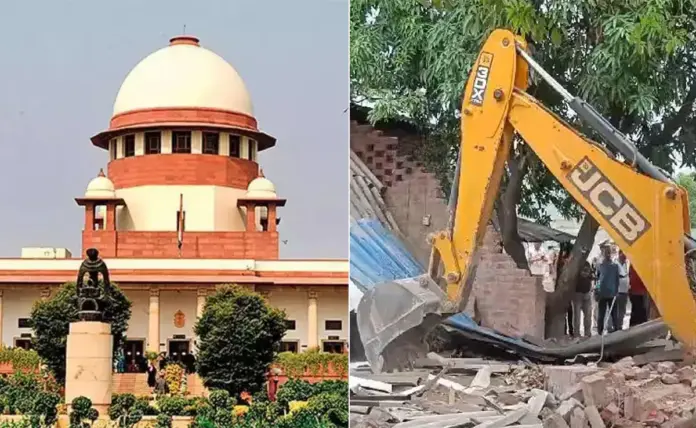The Supreme Court of India on Wednesday issued a crucial directive, emphasizing that no demolition should be carried out without providing prior notice to the affected parties. In a significant ruling aimed at ensuring fairness and transparency, the apex court stated that those impacted by such decisions must also be given adequate time to challenge the demolition orders before they are implemented.
The bench, led by Chief Justice D.Y. Chandrachud, underscored the importance of following due process while handling demolitions, particularly in cases where people’s homes or businesses are involved. “Demolition without notice violates the principles of natural justice,” the court observed, adding that such actions often lead to severe hardships for individuals, leaving them without recourse or the opportunity to defend their rights.
The Supreme Court’s pronouncement comes against the backdrop of several recent incidents of alleged arbitrary demolitions across the country, often criticized for targeting marginalized communities or being carried out as retaliatory measures. The bench highlighted that the rule of law must prevail in all circumstances, and administrative authorities are bound to act within the framework of the Constitution.
While addressing a petition related to a contentious demolition drive in a state, the court directed municipal and local authorities to strictly adhere to legal procedures before initiating any demolition activities. It stated that notices should clearly specify the reasons for the demolition and provide sufficient time for the affected parties to respond or seek legal remedies.
The ruling further emphasized the need to balance urban planning and development with the fundamental rights of citizens, including the right to shelter. “Any arbitrary exercise of power undermines the faith of citizens in the justice system and the administration,” the bench noted.
Legal experts and activists welcomed the judgment, describing it as a step toward safeguarding the rights of vulnerable groups. “This judgment reinforces the importance of procedural safeguards and prevents misuse of power by authorities,” said senior advocate Prashant Bhushan.
The Supreme Court also warned that failure to comply with its directions could lead to stringent action against erring officials. The ruling is expected to have far-reaching implications for urban governance and the enforcement of eviction and demolition drives across the country.
The court’s decision serves as a reminder of the judiciary’s role in upholding the rights and dignity of citizens while ensuring accountability from administrative bodies.






